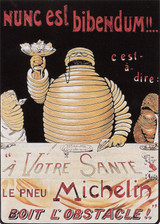USDA Reminds Americans to Avoid Foodborne Bacteria on the Fourth of July
WASHINGTON, June 27, 2016 – No matter where you find yourself on the Fourth of July, you will probably see lots of food, beverages and grass-stained sneakers. Whether you’re enjoying a barbecue in the great outdoors, traveling to see family or friends, or spending time at home, the U.S. Department of Agriculture’s (USDA) Food Safety and Inspection Service (FSIS) is urging everyone to take extra food safety precautions when planning their menu.
The U.S. Centers for Disease Control and Prevention estimates that 1 in 6 Americans (that’s 48 million people) suffer from foodborne illness each year, resulting in roughly 128,000 hospitalizations and 3,000 deaths.
“Because foodborne bacteria thrive and multiply more quickly in warmer temperatures, foodborne illness can spike during summer,” said Deputy Under Secretary for Food Safety Al Almanza. “This is likely because people are spending more time outside – away from the sink and equipment in the kitchen that help consumers keep food safe.”
The Danger Zone is the temperature range between 40 °F and 140 °F in which foodborne bacteria can grow rapidly to dangerous levels that can cause illness. Leaving perishables out too long in the Danger Zone is one of the most common mistakes people make, especially during warmer months.
Keep Food Out of the Danger Zone
The USDA’s Meat and Poultry Hotline, staffed by USDA food safety experts, routinely gets calls from consumers with questions about the perishable foods left out too long. Below are their recommendations on how to steer clear of the Danger Zone this Fourth of July:
- Without refrigeration or a heat source, perishables should not be left out more than two hours if the temperature is at or below 90 ⁰F, and only one hour if the temperature is at or above 90 ⁰F. Since the weather will likely be very hot on July 4th, food should be returned to the cooler within an hour. If you are not sure how long food has been sitting out, throw it out immediately.
- Always keep cold food COLD, at or below 40 °F, in coolers or in containers with a cold source such as ice or frozen gel packs. Keep hot food HOT, at or above 140 °F, on the grill or in insulated containers, heated chafing dishes, warming trays and/or slow cookers. If food needs to be reheated, reheat it to 165 °F.
- Pack an appliance thermometer in your cooler to ensure food stays at or below 40 °F. Divide large amounts of food into shallow containers for fast chilling and easier use.
- Packing drinks in a separate cooler is strongly recommended, so the food cooler isn’t opened frequently. Keep the cooler in the shade, and try to cover it with a blanket or tarp to keep it cool. Replenish the ice if it melts.
- Use the food thermometer to check the internal temperature of meat, poultry and seafood. Use our Is It Done Yet? guide to learn where to place the thermometer in each item. You absolutely cannot tell whether the meat is safely cooked by just looking.
- If you plan to marinate meat and/or poultry for several hours or overnight prior to the event, make sure to marinate them in the refrigerator – not on the counter. If you plan to reuse the marinade from raw meat or poultry, make sure to boil it first to destroy any harmful bacteria.
- To ensure safety, leftovers must be put in shallow containers for quick cooling and refrigerated to 40 ⁰F or below within two hours.
If you have food storage questions, download our FoodKeeper application. This app offers guidance on the safe storage or more than 400 food and beverage items. It’ll give you a peace of mind knowing you served your dish safely.
As always, FSIS would like everyone to remember the four easy food safety steps of Clean, Separate, Cook and Chill and have a food safe Fourth of July!
If you have questions about the Danger Zone, or any other food safety topics, call the USDA Meat & Poultry Hotline at 1-888MPHotline or chat live with a food safety specialist at AskKaren.gov. These services are available from 10:00 a.m. to 4:00 p.m. Eastern Time, Monday through Friday, in English and Spanish.
Recent Posts
-
Ergonomic Cleaning & Material Handling: Why Tool Design Matters
Safety, efficiency and comfort are important factors when it comes to cleaning and material han …Mar 09, 2025 -
Save with Quality Replacement Parts
Here at Union Jack, we want to ensure you will get the longest life out of your tools and the most …Sep 17, 2024 -
The Origin of the Michelin Guide
From a little red guide book to an iconic standard in international fine dining, have you ever w …Mar 10, 2024



